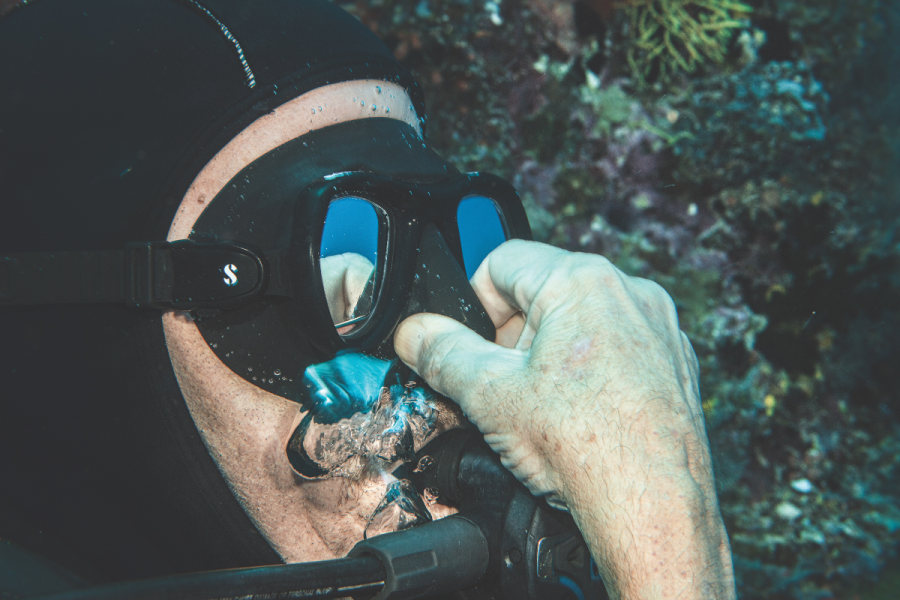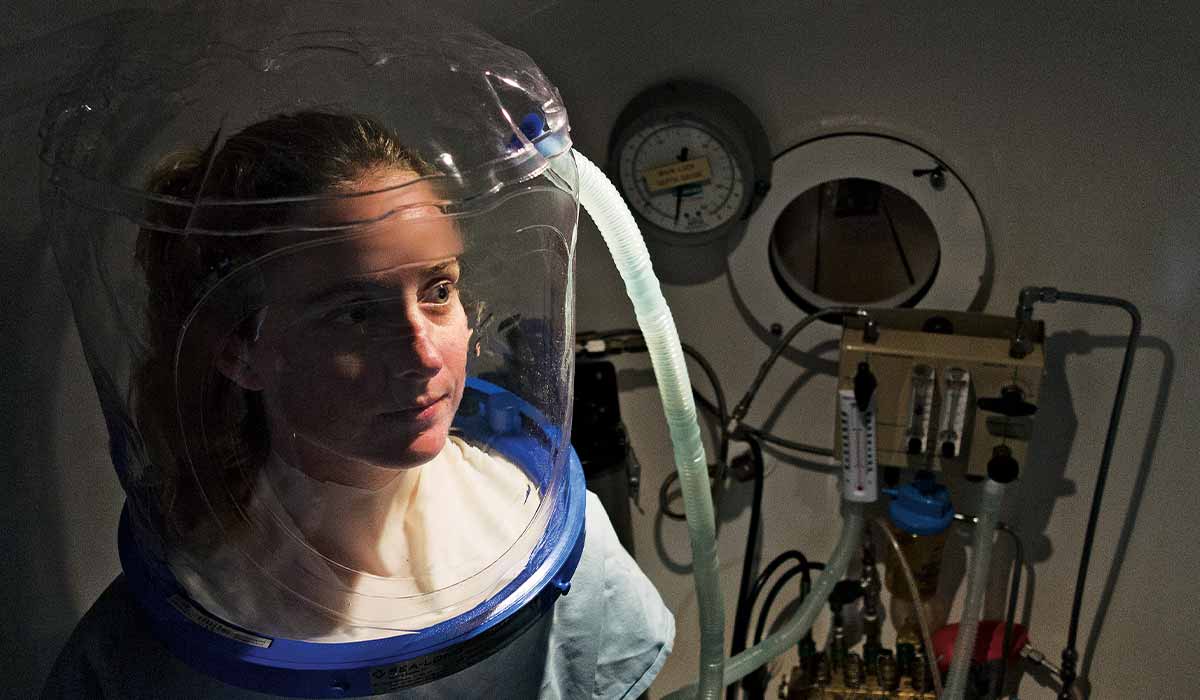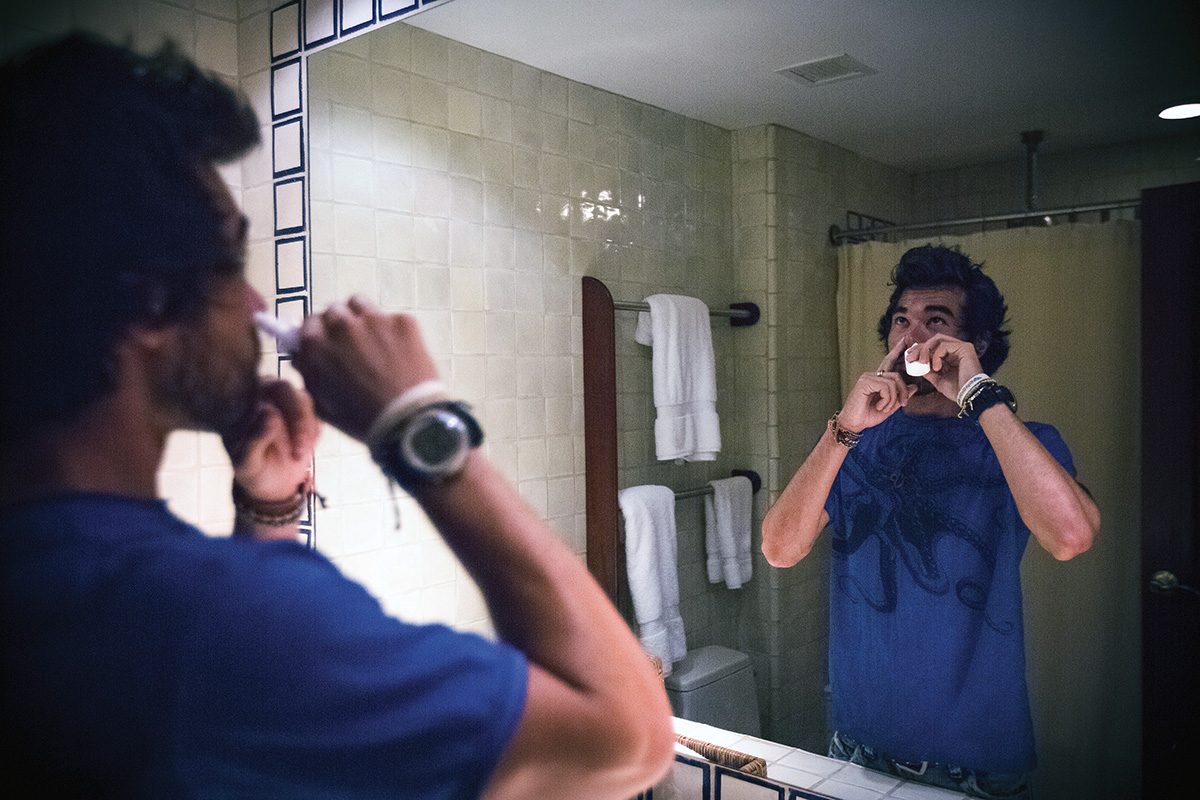A study published by DAN shows that there may be a link between using Sudafed and an increased risk of Oxygen Toxicity. There was also research that showed a possible link between Sudafed and heart problems while diving.
You are using an out of date browser. It may not display this or other websites correctly.
You should upgrade or use an alternative browser.
You should upgrade or use an alternative browser.
Nitrox and pseudoephedrine
- Thread starter FwaScubaDiver
- Start date
Please register or login
Welcome to ScubaBoard, the world's largest scuba diving community. Registration is not required to read the forums, but we encourage you to join. Joining has its benefits and enables you to participate in the discussions.
Benefits of registering include
- Ability to post and comment on topics and discussions.
- A Free photo gallery to share your dive photos with the world.
- You can make this box go away
Links?A study published by DAN shows that there may be a link between using Sudafed and an increased risk of Oxygen Toxicity. There was also research that showed a possible link between Sudafed and heart problems while diving.

ASK DAN: What Do I Need to Know About Decongestants and Diving?
<p>ASK DAN: What Do I Need to Know About Decongestants and Diving?</p>
These are the only links that I can pull up at work because the WI-FI restrictions on our network won’t let me open the other articles. I also remember an article from the mid to late 90’s that talked about the heart attack risk. I will do some research as I have time and post the links when I find them.
Current Thoughts on Mechanisms of Hyperoxic Seizures Johnny E. Brian, Jr., M.D.
There are also a few animal studies that indicate that there's an increased seizure risk, but nothing that I'm aware of that is a direct link...
There are also a few animal studies that indicate that there's an increased seizure risk, but nothing that I'm aware of that is a direct link...
tekkydiver
Contributor
- Messages
- 775
- Reaction score
- 632
Reminds of the days back on Scuba Board when Dan Volker used to give medical advice
From DAN....

 dan.org
dan.org

 dan.org
dan.org

Understanding Oxygen Toxicity
Oxygen toxicity is still being understood by researchers. Learn more about oxygen toxicity, including who is at risk more.
In the case of pseudoephedrine, things evolved differently. Several divers who experienced symptoms of oxygen toxicity called DAN and blamed the drug pseudoephedrine, an active ingredient in many over-the-counter medications (such as Sudafed®) used to treat congestion. DAN contracted an animal study with the University of South Florida. The study indicated that normal doses of pseudoephedrine should not increase the risk of seizures in the majority of divers, but there was a huge individual variability in susceptibility to oxygen toxicity — sufficient variability to explain why divers sometimes get toxicity symptoms despite “safe” exposures. It was also demonstrated that very large doses, which may be achieved if a diver uses multiple over-the-counter drugs containing pseudoephedrine, may increase susceptibility to oxygen toxicity.
and..

Decongestants and Diving
Both the dose of decongestant and gender of the diver impacted the occurence of seizures.
Anecdotal evidence collated by DAN, suggested that use of nasal decongestants, such as pseudoephedrine salts, increased a diver’s risk for developing CNS oxygen toxicity, the primary sign of which are generalized seizures. It was postulated that high doses of pseudoephedrine hydrochloride (PSE) reduced the time it took for seizures to occur in unanesthetized, freely behaving rats exposed to 5 atmospheres absolute (ATA) oxygen in a dry dive chamber. Sixty-three male rats and 114 female rats (60 virgins and 54 retired breeders) were implanted with a radio-transmitter that recorded cortical electroencephalogram activity (EEG; increased EEG electrical spiking indicates a neurological seizure), core body temperature, and animal movements. After at least seven days of recovery from sterile surgery, each animal was given an oral dose of either saline fluid (control) or PSE (mg PSE/kg body weight): 0, 40, 80, 100, 120, 160 and 320. Rats breathed air before switching over to 100 percent O2 (1 ATA O2). After collecting baseline data, rats were dived to 5 ATA O2 until onset of neurological seizures coincident with visually detected behavioral seizures. The latency to seizure (LS) was the time elapsed between reaching 5 ATA and exhibiting onset of seizures. The LS value was used as the index of an animal’s sensitivity to HBO. The first study was done in male lab rats (Pilla et al., 2013). Based on our findings, we repeated the study in female lab rats to see if there were any differences due to gender (Held et al., 2014).
In male rats, there was no significant difference between the LS value between control animals and those dosed with 40-80 mg/kg PSE. At the higher doses of PSE, ranging from 100-320 mg/kg PSE, there was a significant dose-dependent decrease in the LS value as compared to control animals. Thus, higher doses of PSE accelerated onset of HBO-induced seizures in unanesthetized, freely behaving male rats breathing 5 ATA O2.
Female rats, unexpectedly, seized quicker than males during exposure to HBO. And treatment with PSE did not accelerate the onset of seizures at any dose including the highest dose tested.
My Comments on the above...Years ago, DAN's only article on this (since removed) spent at least half of its content explaining the scientific process, in effect telling you why you shouldn't necessarily trust the conclusion of the report (it might be a factor in O2 toxicity). The tests described above are all more recent than that previous report. The truth is that there is no confirmed case of a diver getting O2 toxicity while using pseudoephedrine. The original article cited a couple of cases in which divers died alone with no obvious cause of death. They had been using nitrox and taking pseudoephedrine, and some people suggested that they might have toxed, and, if so, the pseudoephedrine might have been a factor.
The newer studies suggest that normal doses are not a problem, but even if it were to make a slight increase in the potential for toxicity, here is something to consider. Every single case of oxygen toxicity I know of has occurred with technical divers breathing a significantly wrong gas at the wrong depth for extended periods of time. I have never heard of a case of a NDL diver doing a typical nitrox dive experiencing oxygen toxicity. Over the last decade or so, I have periodically asked people on ScubaBoard if they have heard of such a case, and no one has provided anything more than a "well, it could have been" response.
An experiment on rats showed increased risk of oxygen toxicity.
I don't know whether those results have ever been replicated in humans and the oxygen exposures were way above what human divers use, but caution is warranted until we have more definitive information one way or the other.
I don't know whether those results have ever been replicated in humans and the oxygen exposures were way above what human divers use, but caution is warranted until we have more definitive information one way or the other.
I just figured out its a different drugGoogling pseudoephedrine and nitrox I came across very few articles. Of the few found, they seemed to frown upon it. Does anyone dive nitrox w pseudoephedrine or have experience or knowledge of it?
My personal experience: I frequently dive Nitrox and will often take Sudafed with no ill effects. My typical program on a dive vacation is to do two dives in the morning, break for lunch and do an afternoon and/or night dive. After a few days of this, my ears start to get tender and I will take a Sudafed at breakfast or during the lunch break. My usual dive buddy has the same routine. I know others who prefer Afrin nasal spray. None of us has had any issues. This is not medical advice, just our experience.
So -40m on 100% O2, I don't think any of us would willingly dive to that depth on 100% O2 even without taking pseudoephedrine.After collecting baseline data, rats were dived to 5 ATA O2 until onset of neurological seizures coincident with visually detected behavioral seizures.
Similar threads
- Replies
- 20
- Views
- 1,842
- Replies
- 15
- Views
- 1,935
- Replies
- 92
- Views
- 6,055
- Replies
- 67
- Views
- 5,536



